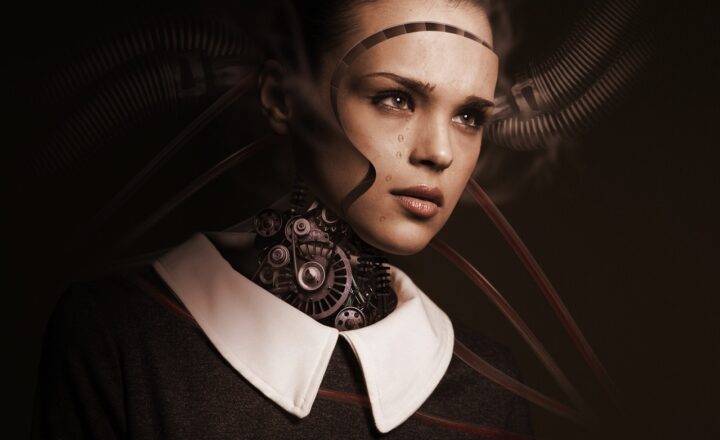How AI is Reshaping Everyday Devices: The Future of Smart Living
November 17, 2024

Artificial Intelligence (AI) is no longer a concept confined to tech labs and high-end enterprise solutions; it has rapidly integrated into our daily lives, transforming the way we interact with the world around us. From the smart speakers in our homes to the algorithms on our phones that help us connect with family and friends, AI is quietly revolutionizing our everyday devices. As we move deeper into the 21st century, understanding how AI is reshaping these devices is crucial for embracing the future of smart living.
1. The Rise of Smart Devices
Smart devices are designed to improve our lives by automating routine tasks, enhancing personalization, and increasing efficiency. These devices leverage AI technologies such as machine learning and natural language processing to learn user preferences and behaviors. The growth of smart devices has been remarkable, with everything from smart thermostats and lighting systems to fridges and wearable technology being available on the market today.
**Key Examples of Smart Devices:**
- Smart Speakers: Devices like Amazon Echo and Google Home are equipped with AI assistants (Alexa and Google Assistant) that can perform various tasks, from playing music to controlling other smart devices via voice commands.
- Smart Thermostats: Products like Nest Learning Thermostat use AI to learn your heating and cooling preferences and optimize energy use accordingly, leading to efficiency and savings on energy bills.
- Wearable Technology: Fitness trackers and smartwatches utilize AI to monitor health metrics and offer personalized insights based on your daily activities, helping you maintain a healthier lifestyle.
As these devices continue to evolve, AI will become even more integrated into their core functionalities, ultimately redefining our experience of everyday living.
2. Personalization and User Experience
One of the most significant contributions of AI to smart living is its ability to provide personalized experiences. Through data analysis and machine learning algorithms, AI can adapt to our preferences, offering a level of customization that was previously unimaginable.
**How AI Personalizes Your Devices:**
- Predictive Analysis: Smart devices analyze patterns in user behavior to anticipate needs. For instance, smart refrigerators can suggest recipes based on available ingredients, while smart TVs recommend shows based on viewing history.
- Learning Capabilities: AI-driven devices learn from user interactions. For example, smart thermostats refine their temperature settings over time, creating a comfortable environment while minimizing energy usage.
- Voice Recognition: AI enhances voice recognition systems, allowing devices like smart speakers to understand and respond to diverse speech patterns, dialects, and commands effectively.
Personalized experiences not only enhance user satisfaction but also increase device efficiency, as they become better tailored to our individual needs and lifestyles.
3. Smart Home Automation: A New Standard
Smart home automation represents a significant leap toward a streamlined, efficient living environment. With AI integration, managing home systems has become more intuitive and effective.
**Benefits of AI-Enabled Home Automation:**
- Accessibility: Individuals with disabilities can control their environment using voice commands or smart devices, improving their quality of life significantly.
- Energy Efficiency: AI optimizes energy use through smart monitoring and adjustment of home systems. For instance, AI can schedule irrigation for gardens based on weather forecasts, saving water and optimizing garden health.
- Security Features: AI-enhanced security systems can analyze data from surveillance cameras, detect unusual activity, and send alerts to homeowners, drastically improving safety measures.
The future of home automation is bright, with AI playing a pivotal role in not just enhancing comfort, but also ensuring safety and sustainability.
4. AI in Healthcare Devices
As the healthcare industry moves toward a more technology-driven approach, AI is at the forefront of significant advancements in medical devices. From wearables that monitor health to sophisticated diagnostic tools, AI is making healthcare more proactive and personalized.
**Transformative AI Applications in Healthcare:**
- Remote Monitoring Devices: Wearable devices that track heart rate, blood pressure, and glucose levels provide real-time data to physicians, allowing for timely interventions and personalized care adjustments.
- AI Diagnostics: Machine learning algorithms analyze medical images and data more accurately than human experts, leading to faster and more accurate diagnoses, as evidenced by AI’s role in radiology and pathology.
- Personalized Treatment Plans: AI systems analyze patient history, genetic data, and treatment outcomes to suggest personalized treatment paths that increase effectiveness and reduce side effects.
As these AI technologies develop, they promise to revolutionize healthcare, making it more efficient and tailored to individual patient needs, ultimately leading to improved health outcomes.
5. The Challenges Ahead
Despite the immense potential of AI-enhanced devices, there are ongoing challenges that need to be addressed as we move into a smarter future.
**Key Challenges:**
- Privacy Concerns: With increased data collection comes the potential for privacy violations. Users must trust that device manufacturers will protect their personal information from misuse and hacks.
- Interoperability Issues: The effectiveness of smart living relies heavily on the seamless integration of various devices. The lack of standardized protocols can lead to compatibility problems, impeding user experience.
- Dependence on Technology: As we become increasingly reliant on AI devices, there is a risk of diminished human skills for routine tasks and potential disruptions in everyday life if these systems fail.
Addressing these challenges requires collaboration between manufacturers, regulators, and consumers to ensure that the benefits of AI-enabled devices are realized safely and effectively.
Conclusion: Embracing the Future of Smart Living
AI is undeniably reshaping everyday devices, marking the advent of a new era in smart living. As we continue to embrace technological advancements, understanding how AI operates and what it means for our lives is paramount.
With improvements in personalization, automation, and efficiency, AI holds the promise to not only enhance our living experience but also to improve our overall well-being. For us to fully benefit from these innovations, it is essential to engage with the technology actively, advocating for better practices in privacy and interoperability along the way. The future of smart living is here, and it’s an exciting time to explore all that AI has to offer.
—







